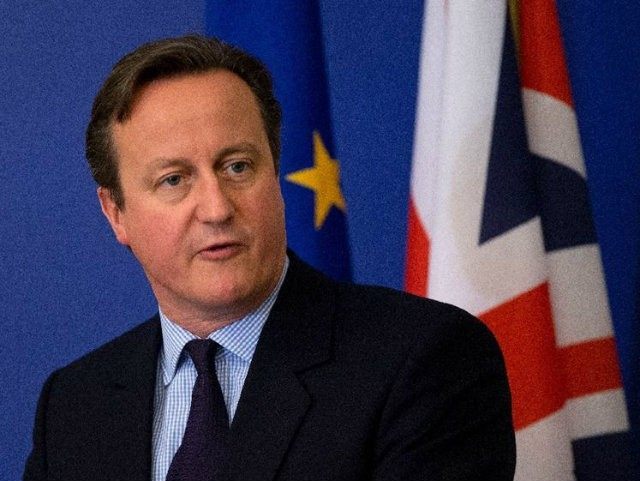David Cameron heads to Brussels Thursday hoping to breathe new life into Britain’s bid to recast its ties with the European Union, which has hit problems over a plan to cut benefits for migrants.
With a referendum on leaving the EU due by the end of 2017, Cameron’s plan to curb migrant benefits for the first four years they are in Britain faces stiff resistance from other leaders, who see it as discriminatory.
“Cameron’s hardest battle is certain to be on welfare reform,” said Agata Gostynska-Jakubowska of the Centre for European Reform (CER) think-tank.
“He has made a fetish of in-work benefits in his negotiations… on this issue, he is alone against 25 member states.”
The measure is one of the four main pillars of the prime minister’s strategy to renegotiate Britain’s membership of the EU and then campaign to stay in the bloc.
Early hopes that an overall deal for Britain to take to voters could come at this week’s summit after Cameron outlined his wish list in a letter to EU president Donald Tusk last month have been dashed.
The pair are now aiming for a February agreement instead. But the tricky question is how to secure it, given the scale of opposition to Cameron’s benefits proposal.
Members of Cameron’s centre-right Conservative party, which has a strong eurosceptic strand, have been voicing their concerns in public.
London Mayor Boris Johnson wrote in Monday’s Daily Telegraph that Brussels had given “the bum’s rush” — an expression referring to an abrupt dismissal — to Cameron’s “modest” proposal.
Johnson, seen as a possible successor to Cameron, added that the EU needed to recognise that Britain was a “special case” due to the number of migrants it attracts.
Owen Paterson, a eurosceptic former minister, told Sky News Sunday that Britain had been promised “a total change” in its relationship with the EU.
“What actually is happening, he (Cameron) is like someone in a little dinghy, bumping along, being towed along by the enormous great Channel ferry,” Paterson added.
The prime minister’s spokeswoman denied Britain had been given “the bum’s rush” by the rest of the EU.
She expected the renegotiation bid would be the main topic of conversation at Thursday night’s summit dinner.
– ‘Creative proposals’ –
While British officials deny reports they have dropped the four-year benefit restriction proposal, it is clear that Cameron’s shuttle diplomacy with European leaders in recent days has been complicated.
In Poland — one of the EU countries with the biggest migrant populations in Britain — officials said during a visit by Cameron last week that they were waiting for “creative proposals” from London on how to address the issue.
Cameron’s Foreign Secretary Philip Hammond has indicated that such alternative proposals should come from other member states.
“We’ve made very clear that if people have other ideas that will deliver on this very important agenda for the British people, we’re absolutely prepared to listen to them,” he said Monday.
Possible solutions to the impasse could include an emergency brake on migration into Britain, according to EU diplomatic sources.
This would allow Britain to limit migration from the other 27 EU countries if its public services are overwhelmed or its welfare system is being abused, the sources said.
Some analysts suggest another alternative could be to withdraw benefits from young Britons as well as EU migrants.
How this disagreement is resolved could be key to the referendum’s outcome, particularly since polls suggest the vote, which many expect in the second half of next year, is looking close.
“Attitudes to immigration are a strong predictor of likely support for leaving the EU,” a paper from foreign affairs think-tank Chatham House said this month.
“The more salient this issue becomes or the more it concerns voters, the more likely it is that the number of ‘outers’ will rise.”

COMMENTS
Please let us know if you're having issues with commenting.